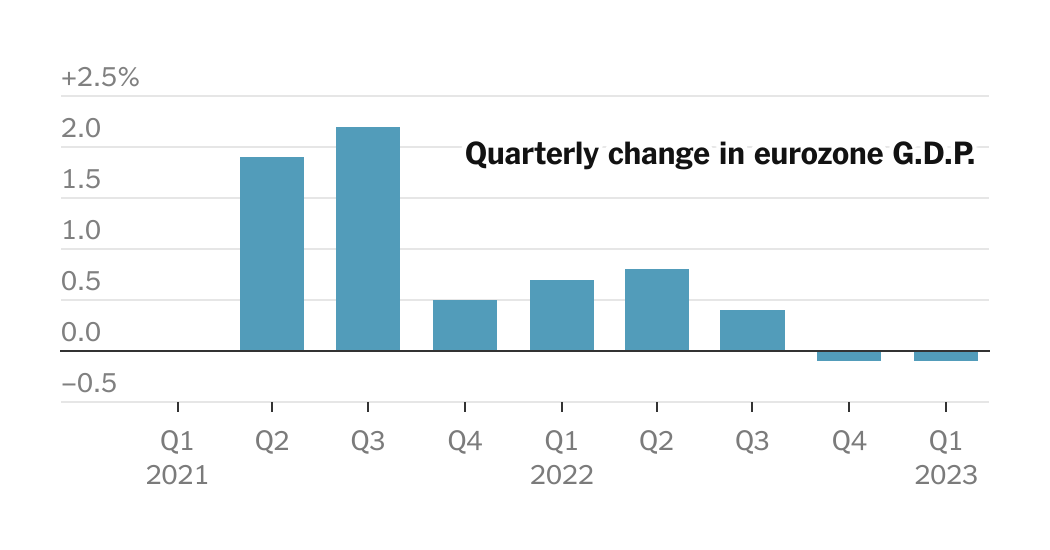Why it matters
Stubbornly high inflation sent many consumers across the continent into a cost-of-living crisis, forcing them to cut back significantly over the period. Spending in the eurozone fell by 0.3 percent in the first three months of this year, following a 1 percent drop in the previous quarter. Imports also fell sharply as demand for goods and services declined.
Government spending, which soared during the pandemic lockdowns, also fell sharply, contracting 1.6 percent in the first quarter from a year earlier.
The downturn mirrors a contraction in Germany, the eurozone’s largest economy, which reported last month that data for the first three months of the year showed the economy had slipped into recession amid the energy price shock.
But Thursday’s report showed mixed results across the region as southern European economies, including Spain, Italy and Portugal, all posted strong growth rates, while Germany and the Netherlands contracted and France grew only slightly.
Since the spring, Europe’s overall economy has picked up pace slightly and the European Commission has raised its growth forecast, forecasting growth of 1.1 percent this year and 1.6 percent in 2024.
“Looking ahead, we think consumer spending will now recover slightly as inflation eases, and we also think government spending will pick up,” Claus Vistesen, chief eurozone economist at Pantheon Macroeconomics, wrote in a note. “But this boost is likely to be offset by a continued decline in investment and a further reduction in inventories, due to tightening credit conditions.”
Background
Governments had hoped to avoid a recession after spending lavishly during the winter months to shield households and businesses from skyrocketing energy and food costs exacerbated by Russia’s war in Ukraine. Countries across Europe quickly built up energy reserves, and a mild winter, along with massive conservation efforts, helped avert the worst.
The strategy has helped lower energy prices and inflation in the eurozone’s major economies has climbed from record highs. In May, annual inflation stood at 6.1 percent, the lowest level in the eurozone in more than a year.
But the price of food and a range of services has continued to rise at an uncomfortably high rate, raising the likelihood that the European Central Bank will continue to raise interest rates at its forthcoming meetings. The International Monetary Fund has warned that the main challenge for European policymakers this year would be to contain inflation without triggering a serious recession.
What’s next
Analysts said the downturn was mild and unlikely to weigh on an economic recovery from the pandemic, but it nonetheless indicated growth would remain tepid for the rest of the year.
“It is difficult to argue that this is a recession,” ING Bank said in a note to customers. “However, the economic stagnation marks a clear break from the recent post-pandemic boom.”
The next monetary policy meeting of the European Central Bank is on June 15.

